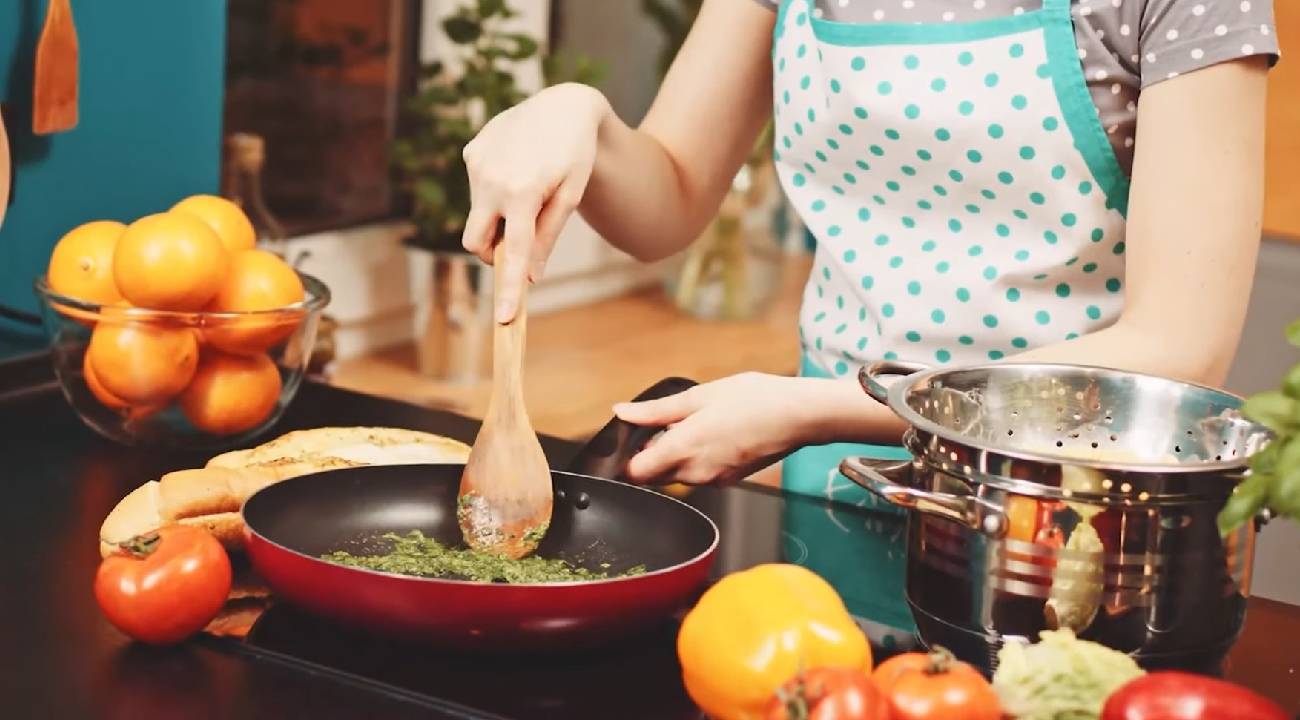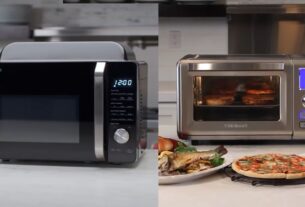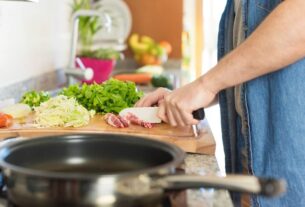Nonstick Cookware has become a household essential for everyday cooking. Generally, it is helpful to cook food that sticks to the blueberry pancakes to dinner with Carbonara pasta and asparagus, the use of nonstick cookware is evident in every home. But, have you wondered if this cookware is safe or not? This item may make you wonder whether they are safe to use or not. From a general perspective, they are safe to use. But there is some controversy about nonstick coating like Teflon. To put this debate to rest, we’ll put forth some facts about nonstick cookware today.
Safety Concerns in Detail
Nonstick pans are coated with a synthetic chemical, which is most commonly known as Teflon. It is made of carbon and fluorine atoms. It was first invented in the 1930s with nonstick, nonreactive, and smooth surface features.Teflon-coated cookware is highly convenient to use and easy to clean. It only needs a small amount of oil or butter to cook with, making it a healthy way to cook food. However, it should be noted that Teflon has been perfluorooctanoic acid (PFOA) free since 2013. Before that time, the controversy was centered on this harmful chemical’s presence in Teflon.

According to experts, when nonstick pans are overheated, the nonstick coating might start to break down into molecules. Some toxic particles and gases might also be released. Since the breakdown begins at temperatures above 500 degrees Fahrenheit, it is advisable that the Teflon-coated pans should be heated below 500 degrees Fahrenheit for safety assurance.
For using nonstick cookware safely, you can strictly keep some safety guidelines in mind which have been proven to be effective by trusted experts. By doing so, you won’t be deprived of the convenience that comes with using these helpful kitchen tools.
Useful Information Around Using a Nonstick Cookware
Here are some useful guidelines and tips you can follow to use nonstick cookware safely. Let’s start with the guidelines-
Never Cook on High Heat
The first and foremost thing to keep in mind while using nonstick pans is to never cook on high heat. Simply set your burner to low and medium before you start cooking.
Don’t Preheat Empty Pans
Be it lightweight or heavyweight, never preheat your pans when they’re empty. Always preheat with oil while you constantly check it.

Make Sure Your Kitchen is Well-Ventilated
When you’re cooking on nonstick pans, make sure you turn on the exhaust fans so that fumes can immediately clear away. Proper ventilation makes cooking safe.
Avoid Searing or Broiling Red Meats
As it’s commonly known that red meats take longer to cook in high heat, it’s advisable that you don’t use nonstick pans for these. Especially, when you want to broil or sear them which requires a temperature higher than 600 degrees Fahrenheit.
Choose Heavier Pans
Even if it may cost you extra, choosing a heavy bottom and sturdy pan will go a long way. As lightweight pans heat too quickly, the heavyweight ones will help with slower heating.
Never Store Foods in the Pans
As nonstick pans are not food storing vessels, you should not use them for storing, especially when the ingredients have acidic contents like lemon or tomatoes that can harm the coating.
Grease the Pans
Even if the labels claim that you can cook food with no grease on your nonstick pans, you should always put a little oil or butter to cook smoothly. However, you should avoid cooking sprays as they contain harsh additives.
Hand Wash Pans Before Using
Before using newly bought nonstick pans, you should hand wash them with mild soap and warm water first. Next, completely dry them with a kitchen towel before using them.

Use Safe and Compatible Utensils
You should never use metal spoons on nonstick pans as they can easily chip the pans. Using heat-resistant plastic, wooden or silicone spoons and spatulas will help you use the pans safely.
Clean Your Nonstick Pans With Scratch-Proof Scouring Pads
Instead of using harsh detergents, you should use mild liquid soaps to clean the pans with scratch-proof scouring pads that say “non-stick pan safe” on the label.
Store Nonstick Pans With Care
Instead of stacking the pans together after cleaning and drying, store them with paper napkins between them so that one pan’s nonstick coating won’t scratch another pan’s coating.
Final Verdict
Overall we can say that the modern-age nonstick pans are completely safe to use by simply abiding by some specific instructions carefully to ensure safety. However, Teflon-coated cookware is used to contain a risk for cancer, but since 2013 the chemicals have altered, and nowadays you’ll find no evidence of its increasing the risk of developing cancer.



